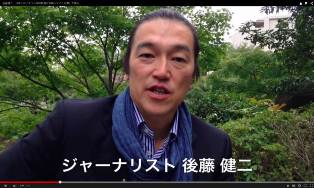 Source: www.japantimes.co.jp
Source: www.japantimes.co.jp Jake Adelstein, writing for the Daily Beast, essentially questioned whether the Abe government had indeed done everything it could to secure the hostages’ release, given that when Yukawa and Goto went missing in northern Syria last year, Tsuneoka Kosuke, a Japanese journalist with contacts within IS, and Hassan Ko Nakata, a Japanese Islamic scholar, approached the government with offers to assist in getting Yukawa and Goto released, only to themselves fall under suspicion from authorities.
Meanwhile the plight of the hostages has captured the attention of the Japanese media and led to an examination of whether IS’s demands are a response to the Abe government’s more robust form of foreign policy. This has led to questions about whether Japan could dispatch its own forces, using collective self-defence as a justification, in an attempt to rescue the hostages (the answer being “probably not, or at least not under the current understanding of collective self-defence” - J).
Hence while daily press briefings have attempted to show that progress is being made, other Japanese citizens have been expressing their solidarity with Goto and their determination to stand up to terrorism by donning traditional kimono (J) (thereby demonstrating that the Japanese “are as one” in the fight against terrorist organisations) and editing the video footage of Goto, Yukawa and their captor in order to ridicule IS and deprive them of the fear that they hope to create – J.
With time running out for Goto and no indication that he is to be released, there is trepidation as to what the next move by IS will be. Given the amount of exposure that the case has made around the world, one could say that IS has fulfilled its goal of focusing attention on its activities. Yet the fact that IS has specifically demanded the release of al-Rishawi points towards a possible compromise, given that al-Rishawi probably has relatives within IS who do not wish to see her executed (since much of IS’s executive stem from northern Iraq and are led by Iraqi Abu Bakr al-Baghdadi. Mind you, given IS’s brand of fanaticism and their opinion of women, one might think that a failed suicide bomber like al-Rishawi might not garner much sympathy from IS).
However right now much depends on how convincing Jordan can be in negotiating a release. The Jordanians clearly want to give priority to the release of Lt al-Kasaesbeh before considering the merits of Goto, although Japan is willing to work for both sides. The uncertainty of the outcome is a significant factor in the increasingly desperate attempts to find a solution, and with 24 hours to go, a breakthrough has yet to be reached .


 RSS Feed
RSS Feed